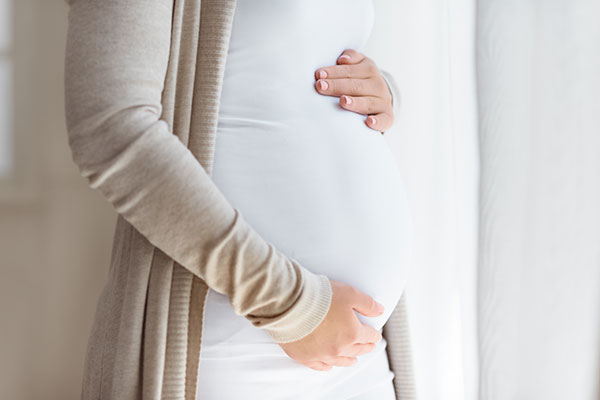What Is Pregnancy Gingivitis?
Pregnancy gingivitis is a subsection of gingivitis that is caused by hormonal changes during pregnancy. Because of the changes in hormones (I.e. increase in estrogen and progesterone), there may be an increased response to the accumulation of oral bacteria, called plaque. The body sends more blood to the gums, which can cause swelling, irritation and bleeding. Also, the change in hormones can make it easier for certain types of bacteria to grow. Although it can occur at any time, the severity of pregnancy gingivitis increases after the second trimester and is most severe in the third. If left untreated, it may progress into a more serious condition called periodontitis. Periodontitis is an advanced form of gum disease that infects the bone that surrounds and supports the tooth, as well as the gum tissue around the tooth.
Signs & Symptoms Of Pregnancy Gingivitis
The gums may appear more red and puffy than usual. There may be some bleeding when brushing or flossing as well as soreness and irritation. Symptoms are typically generalized, but in turn, may appear just localized to a specific area. Pregnancy granulomas, also known as pregnancy tumours, may arise during any trimester. These are bulbous, swollen pieces of gum tissue between teeth that are caused by the change in hormones. Pregnancy gingivitis can range from mild to severe.

Preventing Pregnancy Gingivitis
Because there is an increased response to plaque, the best form of prevention is to keep teeth and gums as clean as possible. It is always essential to maintain good oral hygiene, especially during pregnancy. Brushing at least twice a day at the gum line, flossing at least once a day and using an antimicrobial mouth rinse is considered best practice. It is also essential to maintain regular professional cleanings during the pregnancy; more frequent cleanings may even be recommended based on the symptoms. In most cases, symptoms will slowly reduce and return to normal within a couple of months after the pregnancy.

